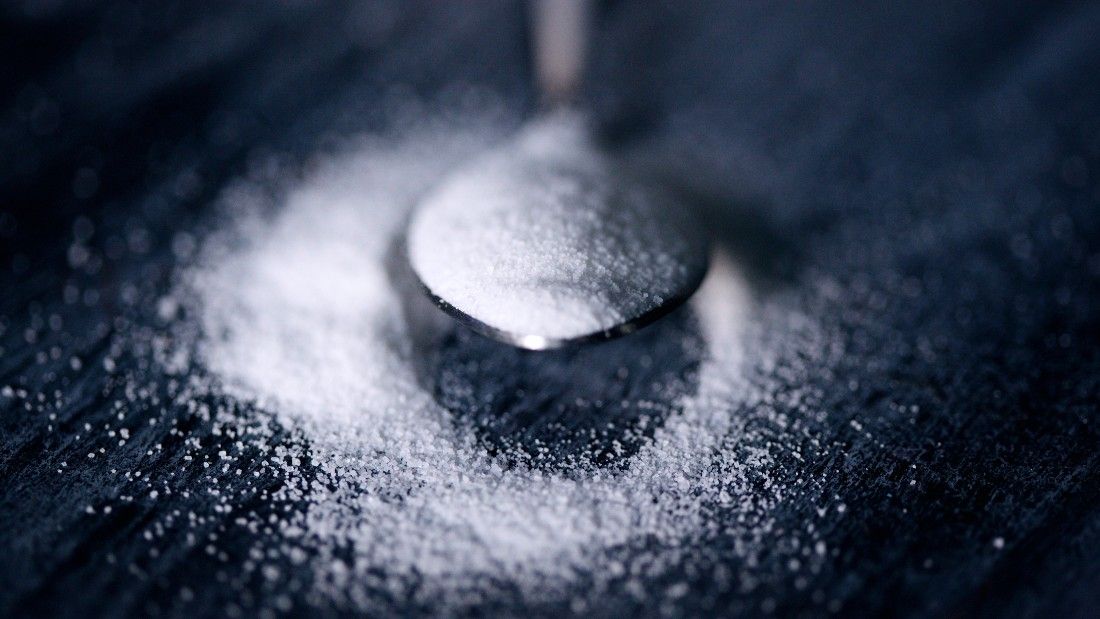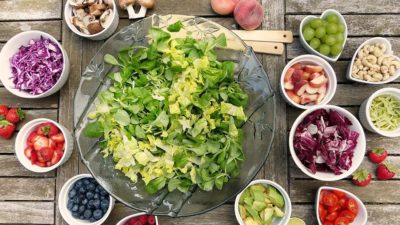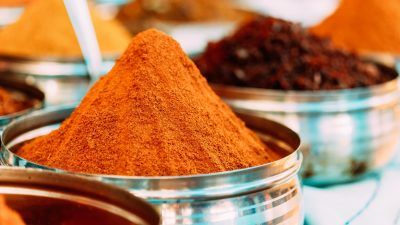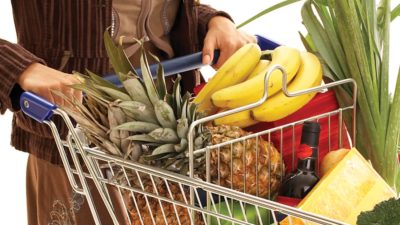7 Healthier Alternatives to Sugar

Consumption of refined sugar has been linked to an incredible amount of illnesses including obesity, type-2 diabetes, heart disease, liver disease, depression and even dementia. By now, we all know we should be reducing the amount of refined carbohydrates we eat, but what do you do if you love a sweet treat? Here are seven healthier alternatives to replace refined sugar without removing all the joy from your life.
1. Date syrup
Date syrup (sometimes called date nectar) is made from soaking and then blending whole dates with some water to create a caramel-like syrup. It’s therefore still considered a wholefood and contains all the goodness of the fruit. Dates are high in fibre, antioxidants and contain minerals and vitamins such as potassium and vitamin K, which help our bones grow. A 2015 randomised control trial indicated that date consumption may lower the risk of colon cancer as they keep our bowel movements regular. Date syrup is easy to make at home if you have a decent blender or can be found in most health food stores. (Some shop-bought date syrups are strained so they don’t contain as much fibre as homemade syrups.)
2. Monk fruit
Monk fruit sweetener is a powder made from the dried juice of the monk fruit, a fruit native to China. Unlike date syrup, monk fruit sweetener isn’t made from the whole fruit so you’ll miss out on some fibre and other nutrients. Despite this, it’s still extremely high in antioxidants called mogrosides. These mogrosides are hundreds of times sweeter than cane sugar but contain no fructose or glucose giving it a glycemic index of zero. (Glycemic index, or GI, is a measure of how quickly food affects our blood sugar levels. A high GI indicates a fast and rise in blood sugar). The only downside is that monk fruit powder might not be as easy to find as some other sweeteners.
3. Blackstrap molasses
Blackstrap molasses are actually a by-product of sugar production but much healthier than the sugar itself. It’s basically all the good stuff taken from the raw sugar cane. Although molasses does contain some sugar, it is rich in a number of vitamins, minerals and antioxidants. Impressively, one tablespoon of blackstrap molasses contains 10 per cent of our daily dose of calcium and magnesium, and a huge 20 per cent of our iron dose. It’s therefore often recommended for menstruating women and people with anaemia. One significant downside of molasses for some people is its strong flavour. Unlike some of the other alternatives, you’re certainly going to notice its unique taste. .
4. Xylitol
Despite its science-fiction sounding name, xylitol naturally occurs in the fibres of fruits and vegetables, and small amounts can even be made by the human body. Xylitol is a sugar alcohol and if you’ve ever chewed on sugar-free gum or munched on sugar-free mints, you’ve probably already had it. Xylitol is refined so it doesn’t contain any vitamins, minerals or nutrients – but it’s not all bad. Xylitol has been shown to be good for dental health by starving the harmful bacteria in your mouth thus preventing cavities and gum disease. Xylitol contains no fructose and its GI is ten times lower than table sugar so it has very little effect on blood sugar and insulin levels. On the downside, it is toxic to dogs so make sure your canine companions stay out of the cupboard. Also, xylitol can have a laxative effect – the more you take in, the more likely you are to experience this unwanted effect.
5. Stevia
Stevia is one of the more common and popular sweeteners on the supermarket shelves. It is natural and occurs in the leaves of the stevia plant. Stevia has a GI of zero but is around two hundred times sweeter than refined cane sugar. Swapping refined sugar for stevia may help manage diabetes, help weight control and reduce blood pressure. One of its antioxidants has also been linked to a reduced risk of pancreatic cancer. Although no doubt healthier than refined sugar, there are some concerns about stevia. Some brands mix it with other less healthy sweeteners therefore negating some of its benefits. There is still little research on the safety of whole leaf stevia, so stick to the purified forms if you decide to use it.
6. Maple Syrup
Maple syrup is the sweet sap tapped from inside the maple tree and then concentrated. It is a very popular alternative to sugar, and it’s not surprising – it’s absolutely delicious. However, despite containing antioxidants and a considerable amount of zinc and manganese, these are still not in a high enough quantity to make up for its outrageous sugar content. About two-thirds of maple syrup is made from sucrose – that’s the same sugar found in table sugar. So, yes it is marginally healthier than refined sugar because of its beneficial nutrients but its high sugar content means we can’t really call it healthy. Maple syrup should be treated as a treat and, if you’re looking for a regular sweetener, it’s better to choose another from this list.
7. Bananas
Don’t try using them to sweeten your cuppa but ripe bananas can remove the need for added sugar in many baking recipes. As long as you use the whole fruit, you’ll be getting all the fibre, which helps regulate our blood sugar levels, and all the other beneficial nutrients packed into this versatile fruit. Ripe, smooshed bananas can be used instead of sugar in cakes, cookies, porridge and smoothies. Frozen bananas can even be blended and combined with ingredients of your choice (eg cocoa powder, peanut butter, berries) to make an incredible, healthy alternative to ice cream, known among vegans as ‘nice cream’. Once you’ve had it, you’ll never go back.
While all of these alternatives are healthier than refined sugar, it’s still important to eat them in moderation. Cutting back on refined sugar can be very challenging for those with a sweet tooth but it’s a totally worthwhile endeavour. Remember that, just as with switching from cow’s milk to a dairy alternative, your taste buds will adapt over time and you’ll find a new normal. Going sugar-free certainly doesn’t mean going treat-free and even if you can reduce your sugar intake by making a few swaps, your health will reap the benefits







